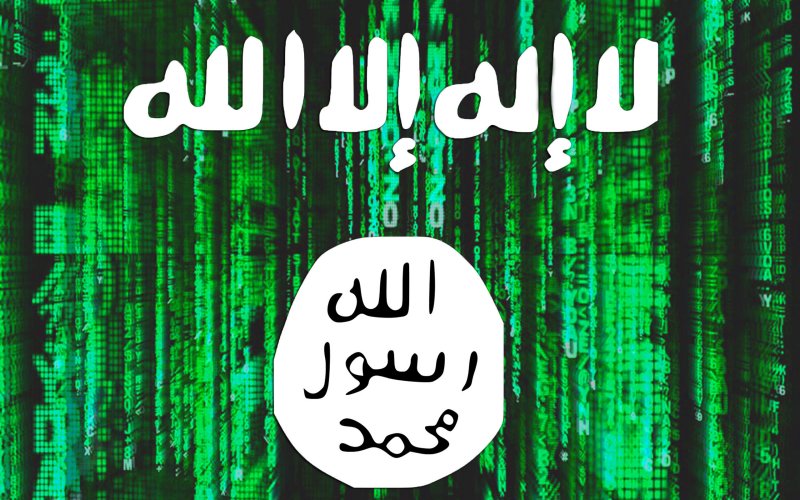Online radicalisation
Blog
Drawing the Line Between Free Speech and Online Radicalisation
July 29, 2015by Jacob Mchangama The global spate of terrorist attacks has brought the phenomenon of online radicalisation to the forefront. Governments and intelligence services warn that extremist groups use social media to recruit new adherents and potential terrorists. From the perspective of human rights, this raises a question – where should the line be drawn between ...
News
VOX-Pol attends Radicalisation Awareness Network meeting
July 7, 2015VOX-Pol Programme Manager Lisa McInerney is speaking at a meeting of the Radicalisation Awareness Network at the Institute for Strategic Dialogue in London today. The meeting, ‘Bringing together industry partners and CVE practitioners – Innovative cooperation to counter extremism online’ is being held to engage private sector partners in the counter-narrative challenge and to organise ...
Blog
IS Radicalises Western Youth Via The Internet? It’s Not That Simple
June 24, 2015by Samina Yasmeen The discussions around why young Australian Muslims are leaving home to join the fighting in Syria and Iraq on the side of or against Islamic State (IS) suffer from two kinds of reductionism. First, they assume that the phenomenon of young (or not so young) people leaving their homes to join these terrorist groups is largely ...
News
VOX-Pol participates in [Y] Factor Conference
June 24, 2015VOX-Pol contributed to this week’s [Y] Factor Conference, a Youth Conference organised by the trainees of the European Committee of the Regions in collaboration with CoR services at the end of their traineeship period. The main idea behind [Y] Factor is to tackle the topics and issues that concern young people by bringing together local ...
Blog
Pictures Matter : The Visual Culture of Jihadism
June 17, 2015by Nico Prucha How the Arabic Ideology of Jihadist Movements Targets non-Arab(ic) Online Networks, Part 2 Jihadist narratives are fostered by the increasingly visual nature of online culture. Videos are the most important mouthpiece to show the manifestation and realisation of jihadist creed (‘aqida) and methodology (manhaj) for which they claim to live and die. ...
News
VOX-Pol joins Insafe Network discussions on Online Extremism and Radicalisation
June 16, 2015VOX-Pol participated in a two-day meeting hosted by the Insafe Network of Safer Internet Centres in Prague from 27-28 May. Insafe is a European network of 31 national awareness centres comprising the 27 EU member states and Iceland, Norway, Russia and Serbia. Each of the national centres implement awareness and educational campaigns, runs a helpline, ...
Blog
Words Matter – How the Arabic Ideology of Jihadist Movements Translates into Non-Arab(ic) Online Networks
June 3, 2015This blog is being published in two parts. Part two on 10 June by Nico Prucha With Arabic as the most important language for Islam, as the Qur’an is the speech of God (kalimat allah), revealed in Arabic, the lingua jihadica is likewise Arabic. Arabic key words of the jihadist segment, as a consequence, have ...
News
VOX-Pol participates in Canada’s Kanishka Project Symposium
April 13, 2015VOX-Pol participated in the Public Safety Canada Kanishka Project Symposium held in Ottawa, Canada from 30-31 March 2015. The Symposium surveyed social media/online-based research conducted under the Kanishka Project, a Canadian government initiative to invest in research on terrorism and counter-terrorism. The Symposium assessed what has been learned during the project, particularly in relation to ...
Blog
Lone Actor Terrorism and the Internet: What Role, If Any?
April 8, 2015by Paul Gill Over the past few years, a number of concerns have been raised about both the nature of the Internet’s relationship with terrorism and the threat posed by lone-actor terrorists. Despite these growing concerns, both literatures have lacked an empirical focus. The tendency to focus upon theory-building and illustrative examples means that we ...
Blog
How to Beat the Media Mujahideen
April 1, 2015by Jamie Bartlett and Ali Fisher These days, you no longer need to fly halfway across the world to join your chosen extremist cause. You can be a jihadi from behind your screen, contributing to the effort with propaganda or cyber attacks. The public profile of the so-called ‘Islamic State’ (IS) and their online supporters ...









